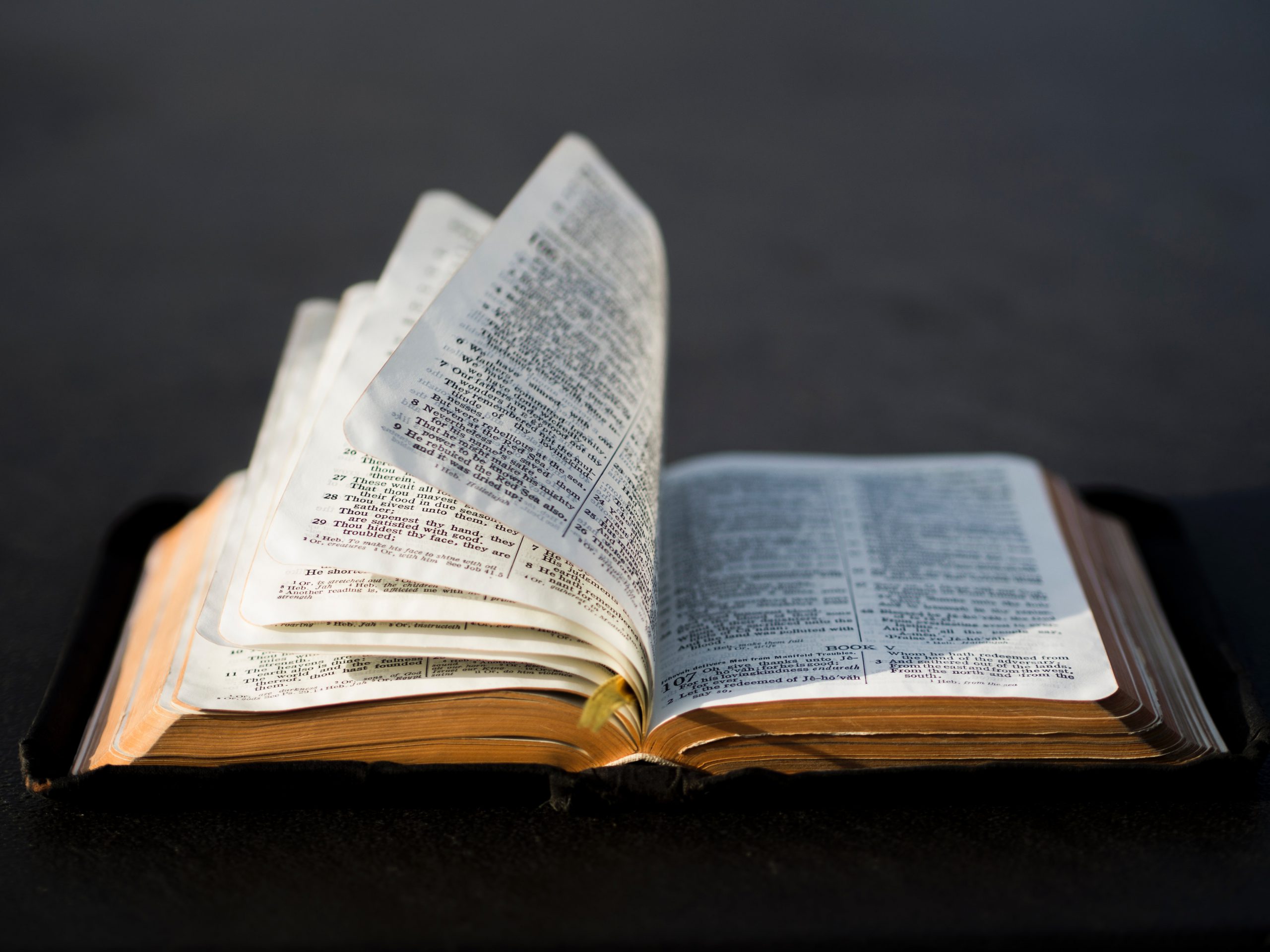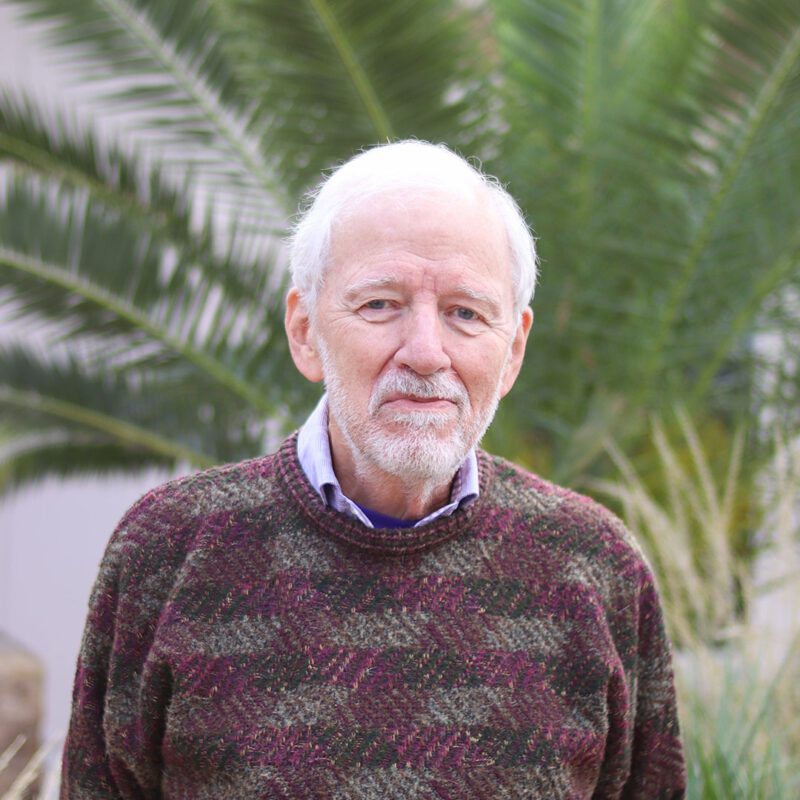
What We Believe
Our Statement of Faith
For more detailed information on what we teach, download our What We Teach document.
Since a statement of faith is a human attempt to systematize the teachings of divine revelation, it is not infallible. However, it does serve to safeguard the unity and integrity of the church. The members of DHBC agree without mental reservation to the following truths.
We believe that the Bible alone in its 66 books is God’s infallible, inerrant, and sufficient Word (Psalms119:128, 160; 2 Peter 1:20-21), given to be the rule of faith and life. It is inspired in all its parts equally, and verbally inspired in every word (2 Timothy 3:16). Because the Scriptures are the Word of God, they are the authority over all human knowledge and every human activity. The Word of God is the means the Holy Spirit uses to cause a person to be born again (1 Peter 1:23). The Scriptures are sufficient to equip the believer to honor God in every circumstance in this life (2 Timothy 3:17).
We believe that there is only one living and true God (Deuteronomy 6:4; Isaiah 45:5-7; 1 Corinthians 8:4), an infinite, all knowing Spirit (John 4:24), perfect in all His attributes, one in essence, eternally existing in three Persons—Father, Son, and Holy Spirit (Matthew 28:19; 2 Corinthians 13:14)—each equally deserving worship and obedience.
A. God the Father
We believe that God the Father is the absolute sovereign ruler of the universe (Psalm 115:3). He is Father within the Trinity (Hebrews 1:5). He is also the Father of all mankind by creation (Ephesians 4:6), but He is only the spiritual Father of those who believe in Christ for salvation (John 8:34-47). God the Father is the Creator of all things (Genesis 1:1-31; Ephesians 3:9), with dominion over all (1 Chronicles 29:11).
B. God the Son
We believe that Jesus Christ is God the Son (Luke 22:70). As the Son of God He is co-eternal and coequal with the Father, possessing all the divine excellencies, and being in very nature God (John 10:30; Titus 2:13; Hebrews 1:2). He became a human being at the incarnation, being conceived by the Holy Spirit (Luke 1:35) and born of the virgin Mary (Matthew 1:23, 25). He became truly man while maintaining all the fullness of deity in bodily form (John 1:1, 14; Colossians 2:9) and so became the God-man. Jesus lived a sinless life (Hebrews 7:26), and He offered Himself as a sacrifice for sins (Hebrews 10:10, 12), securing salvation for all who would believe (John 1:12). His death was a substitutionary atonement for sinners (2 Corinthians 5:21). The redemption of believers was accomplished through the shedding of His blood (Romans 5:9), His death (2 Corinthians 5:14-15), and His bodily resurrection (1 Corinthians 15:14, 20). Jesus is now at the right hand of the Father interceding for His people (Hebrews 1:3). He is the only mediator between God and man (1 Timothy 2:5), and the Head of His body, the church (Ephesians 1:22; 5:23; Colossians 1:18).
C. God the Holy Spirit
We believe that the Holy Spirit is co-eternal and co-equal in all of His divine attributes and being with the Father and the Son (Matthew 28:19; Acts 5:3-4; 28:25-26; 1 Corinthians 12:4-6; 2 Corinthians 13:14). He is a person with all of the characteristics of personhood, including intellect (1 Corinthians 2:10-11), emotions (Ephesians 4:30), and will (1 Corinthians 12:11). The Holy Spirit came to convict the world of sin, righteousness, and judgment (John 16:8-11), to give life to those who are in Christ (Romans 8:10-11), to conform them to the image of Christ (2 Corinthians 3:18), and to glorify the Lord Jesus Christ (John 16:14). He brings about the new birth (John 3:5-8; 1 Corinthians 2:10; 2 Corinthians 3:6), baptizes all believers into the body of Christ (1 Corinthians 12:13) and indwells believers from the moment of conversion (Romans 8:9), sanctifies believers (2 Corinthians 3:17-18), empowers believers for service (1 Peter 4:11), intercedes for believers (Romans 8:26-27), and seals them until the day of redemption (Ephesians 1:13). The Holy Spirit has given a variety of gifts, service, and activities to the church for the common good (1 Corinthians 12:4-7). All gifts, acts of service, and activities which the Spirit gives are to be used for the common good and ruled by the law of love (1 Corinthians 13; 14:12).
We believe that the account of creation in Genesis is a literal, historical account of the creation of the heavens and the earth (Genesis 1:5, 8, 13, 19, 23, 31; Exodus 20:11). God directly created all animals and man without any evolutionary process. He created each tree, plant, and animal after its own kind, and He created man in the image of God (Genesis 1:12, 21-22, 24-27). Adam and Eve were literal, historical people (Genesis 5:3-5; Romans 5:12-21; 1 Timothy 2:13-14).
We believe that man was created on the sixth day of creation in the image and likeness of God, not from any evolutionary process but as an immediate creative act (Genesis 1:26-27; 2:7; James 3:9). Man was created free from sin. He was created with a rational nature, intelligence, and will. He therefore has a moral responsibility to God (Genesis 2:15-25). Adam’s sin against the commandment of God brought the penalty of spiritual and physical death to the human race (Genesis 2:17; 3:1-19; 5:1-31; Romans 6:23; Ephesians 2:1-3). Human beings thus became sinners by nature and by choice and incurred the just wrath of God (Ephesians 2:1-3). All have sinned (Romans 3:23) and apart from Christ are slaves of sin (Romans 6:17), dead in trespasses and sins (Ephesians 2:1), and unable to please God (Romans 8:7-8). Man’s salvation is thus wholly by the grace of God through faith in Jesus Christ (Ephesians 2:8-9).
We believe that salvation is by grace alone through faith alone (Ephesians 2:8-9) in the person and work of Jesus Christ (John 20:30-31), and that no one is or can be justified by works of any kind (Romans 3:20). The sinner’s salvation consists of regeneration, justification, sanctification, and glorification.
A. Regeneration
We believe that regeneration is the sovereign act of the Spirit of God by which He imparts spiritual life to a person (Ezekiel 36:26-27; John 1:13; 3:3-8; Titus 3:5; James 1:18). It is a one-time event that is instantaneous (John 1:13; Colossians 2:13; James 1:18). Regeneration will be seen in a person’s life through their faith and the works that faith produces (Galatians 5:6; James 2:14-26).
B. Justification
We believe that justification is God’s act of declaring a sinner righteous through the sinner’s faith in Jesus (Romans 3:28). Justification is by faith alone apart from any works (Romans 3:28). We teach that justification is a gift of God’s grace (Romans 3:24; Ephesians 2:8), so that no one may boast before God for contributing anything to his own salvation (Romans 3:27; Ephesians 2:9). Justification is based solely upon the righteousness of Jesus Christ imputed to the sinner through faith (2 Corinthians 5:21).
C. Sanctification
We believe that sanctification is the process by which the believer is conformed to the image of Christ (Romans 8:29). While the believer is declared righteous in Christ (justification) through faith, he still battles temptation, sin, and the flesh (Romans 7:25; 1 Corinthians 10:12-13). Every believer is in the process of sanctification, which is learning to overcome temptation, sin, and the flesh by faith(2 Corinthians 3:18). Sanctification is a work performed in the believer by the Holy Spirit (Romans 8:9-13; 2 Corinthians 3:18; Philippians 2:13)
D. Glorification
We believe that all believers will someday be glorified with Christ (Romans 8:30). This glorification will result in receiving a new body which is imperishable, glorified, and spiritual (1 Corinthians 15:42-44). All believers are eternally secure because they have been sealed by the Holy Spirit for this day of redemption in which all believers will be glorified (Ephesians 1:13-14).
We believe that the church is the body of Christ (Colossians 1:24). Jesus Christ is the Head of the church with all authority, power, sovereignty, and supremacy over it (Ephesians 5:23-32; Colossians 1:18). The members of the body of Christ, the church, are all of those who have received Jesus by faith (Ephesians 2:11-3:6). The purpose of the church is to glorify God (Ephesians 3:21; Revelation 1:6) through worshipping Him (Romans 12:1), fulfilling the Great Commission (Matthew 28:18-20; Ac 1:8), participating in baptism and the Lord’s Supper (Acts 2:41-42; 1 Corinthians 11:23-26), and building itself up in the faith in love (Ephesians 4:11-16). The church has two ordinances – baptism and the Lord’s Supper. Jesus commanded His disciples to baptize all new disciples in the name of the Father, the Son, and the Holy Spirit (Matthew 28:18-20). The Lord’s Supper is to be done by partaking of the bread and the cup of the New Covenant (1 Corinthians 11:24-25). The bread and the cup are symbolic elements of the body and blood of the Lord, but they are not themselves the actual body and blood of the Lord, nor do they become the actual body and blood of the Lord as they are used in the Lord’s Supper.
We believe that holy angels are created beings and therefore not to be worshiped. They were created by God to serve and worship Him (Luke 2:9-14; Hebrews 1:6-7, 14; Revelation 5:11-14; 19:10; 22:8-9).
We believe that Satan is a created angel who brought sin into existence by rebelling against his Creator (Isaiah 14:12-17; Ezekiel 28:11-19). Some angels followed Satan in his rebellion and also fell into sin (Matthew 25:41; Revelation 12:1-12). Satan is the open and declared enemy of God and man (Isaiah 14:13-14; Matthew 4:1-11; Revelation 12:9-10) who will ultimately be crushed by God and eternally punished in the Lake of Fire (Matthew 25:41; Revelation 20:10).
A. Death
We believe that when a believer dies, his soul passes immediately into the presence of Christ without loss of immaterial consciousness (Luke 23:43; Philippians 1:23; 2 Corinthians 5:8; Revelation 6:9-11), his soul and body separated until his body is resurrected and glorified (1 Corinthians 15:35-44, 50-54; 2 Corinthians 5:8; Philippians 3:21; 1 Thessalonians 4:13-17). When an unbeliever dies, his soul is kept under punishment until the final judgment (Luke 16:19-31). At the final judgment all unbelievers shall be resurrected, condemned, and cast into the Lake of Fire where they will be tormented under the just wrath of God forever (Daniel 12:2; Matthew 25:41-46; John 5:28-29; 2 Thessalonians 1:7-9; Revelation 20:11-15).
B. The Coming of Christ
We believe that Jesus Christ will return to the earth personally and bodily, with great power and glory (Matthew 24:27-31; 25:31; Acts 1:11; 1 Thessalonians 3:13; 5:23; 2 Thessalonians 1:6-10; 2:8). The coming of Christ will be unexpected, and no one knows the day nor the hour of His coming (Matthew 24:36-42). Believers are to live in constant readiness for the coming of Christ in glory (Matthew 24:42-25:30).
C. The Eternal State
We believe that the present heavens and earth will be destroyed with intense heat and pass away (2 Peter 3:10). Following the destruction of the heavens and the earth, new heavens and a new earth will be created in their place (2 Peter 3:13). The new heavens and the new earth will be the eternal dwelling place of the people of God, where they will see God’s face and reign with Him forever and ever (Revelation 22:3-5).








